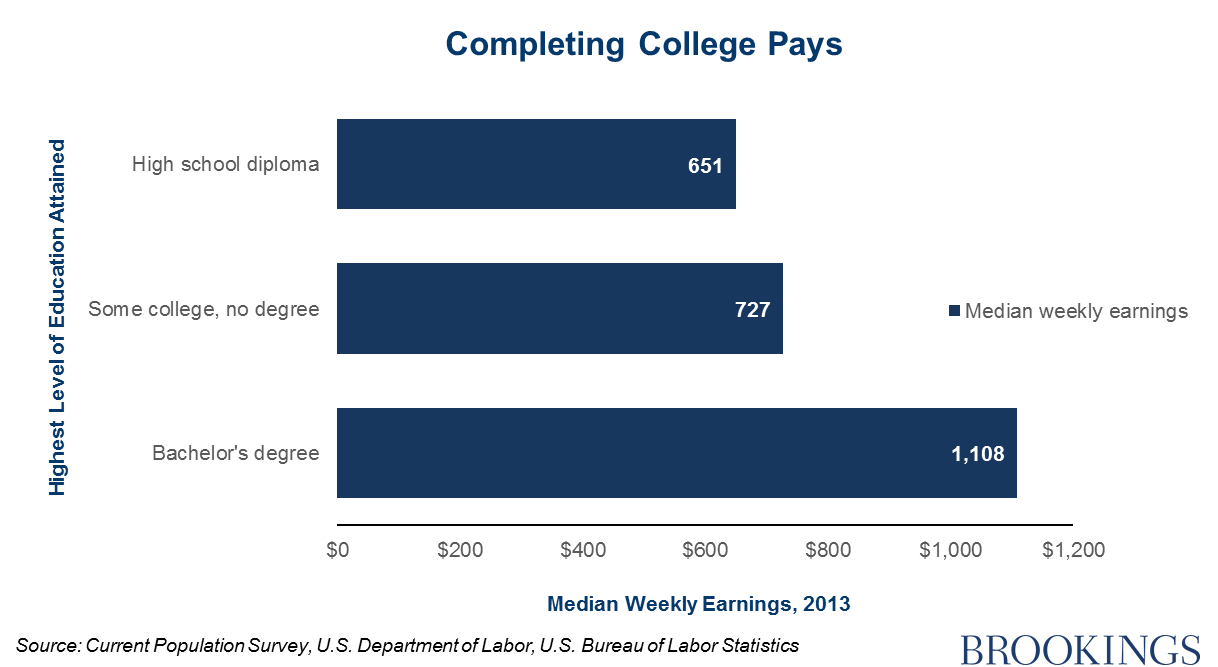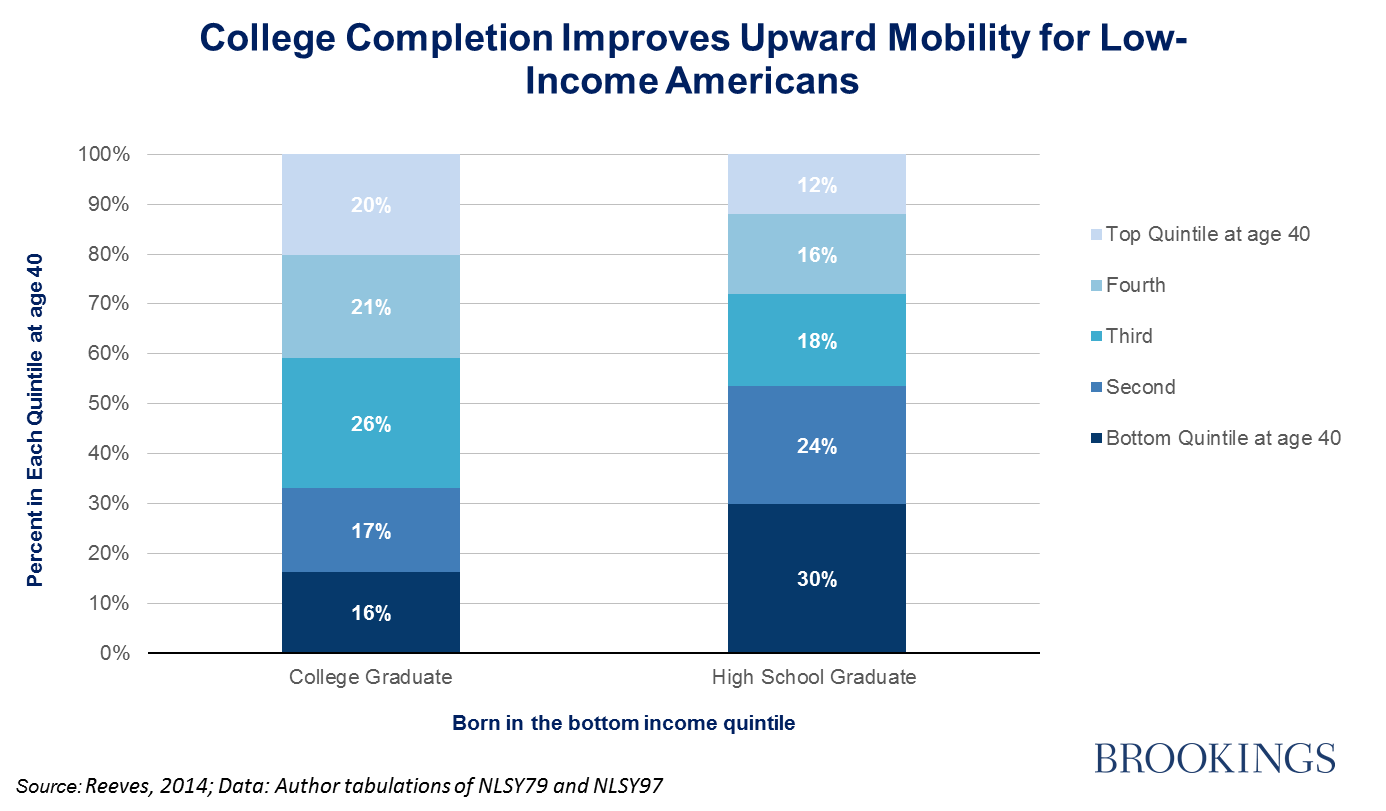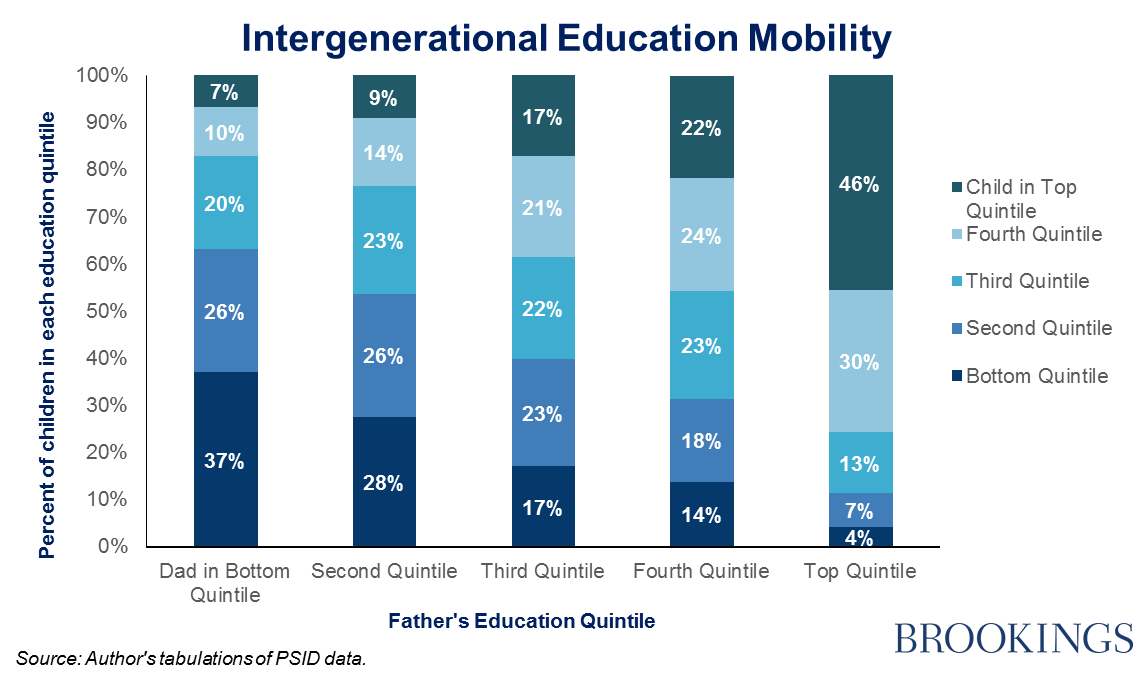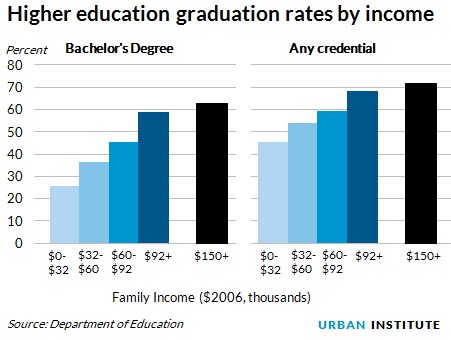Americans have been getting better educated in the last half-century, but class gaps in post-secondary educational attainment remain large. Though these gaps have been overestimated in a recent report from the Pell Institute, careful research from our colleagues in the Brown Center on Education Policy and from Sandy Baum at the Urban Institute demonstrate the scope of these gaps:
Why Does College Matter For Social Mobility?
- College drop-outs have average earnings levels and unemployment rates closer to that of high school graduates than college graduates :

- Individuals born into families at the bottom of the income distribution who get a college degree have more upward mobility than those who do not, as shown in our previous research:

- Parents pass on their educational advantage to the next generation. Almost half of the children born to fathers in the top quintile of educational attainment (in our analysis, possessing at least an associate’s degree) are in the top quintile of educational attainment themselves as adults:

The wide gaps in college completion rates by family income background is a stark reminder of the deep inequalities in America’s post-secondary education system. President Obama’s recent proposal for free community college has re-invigorated the debate over college access. Good: but we need to remember that it is not enough to get students into the lecture hall – they must walk out with a diploma as well.
Correction (3/12/15): A previous version of this blog post reported the misleading figures on college completion and attendance from the Pell Institute’s report. Thanks to Matt Chingos and Susan Dynarski for alerting us to the irregularities in the Pell report. Based on their research, we have removed the Pell estimates and replaced them with more accurate figures on class gaps in college completion rates.
The Brookings Institution is committed to quality, independence, and impact.
We are supported by a diverse array of funders. In line with our values and policies, each Brookings publication represents the sole views of its author(s).




Commentary
Three Reasons College Matters for Social Mobility
February 6, 2015